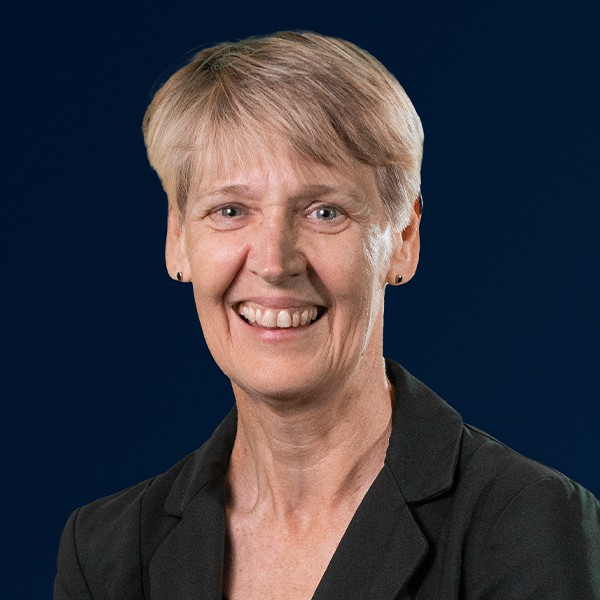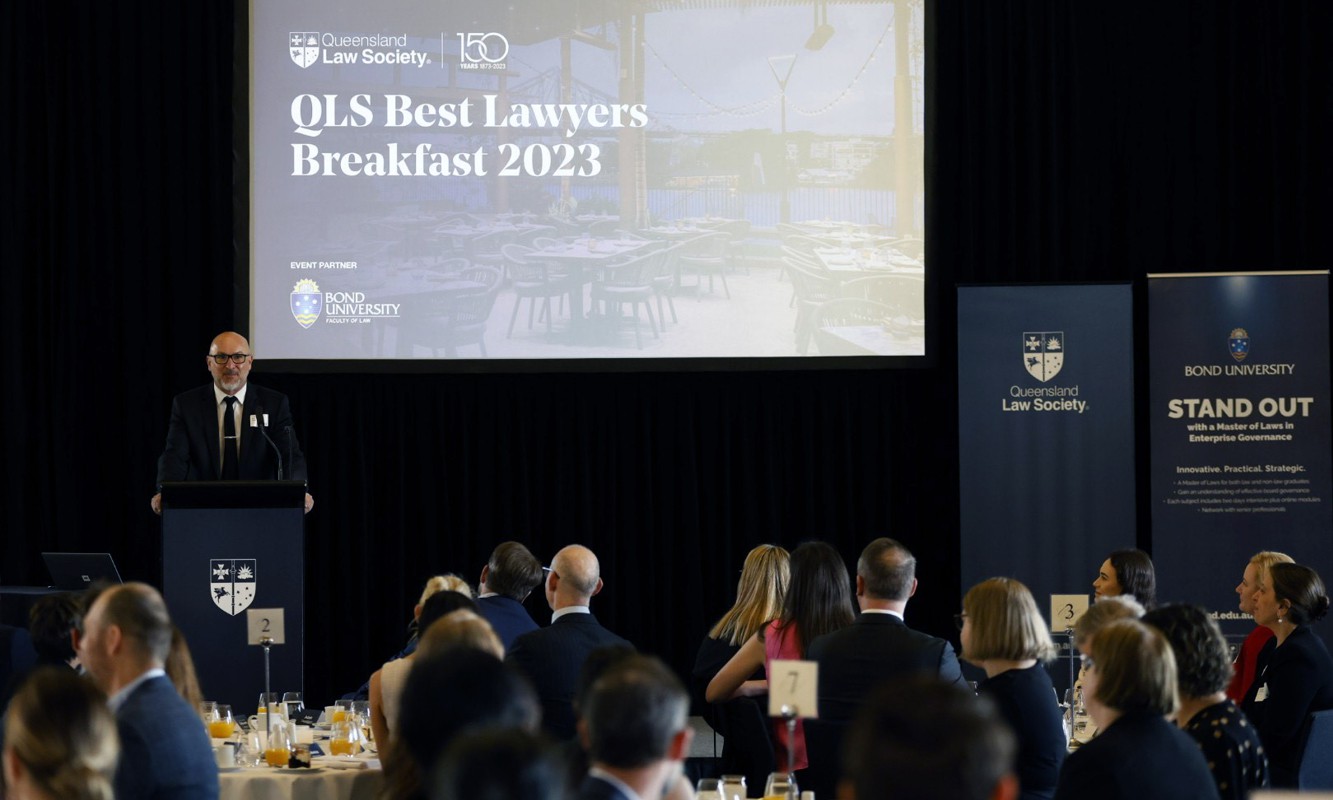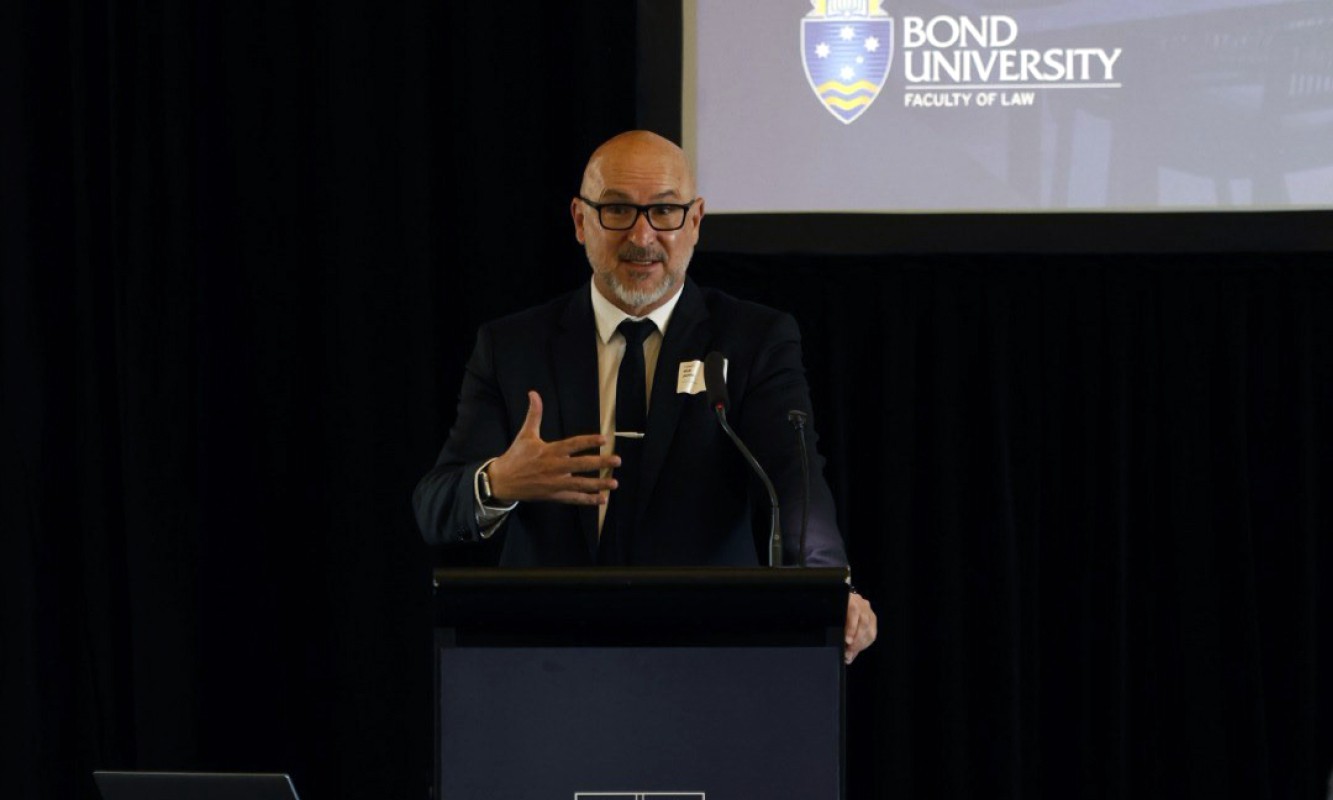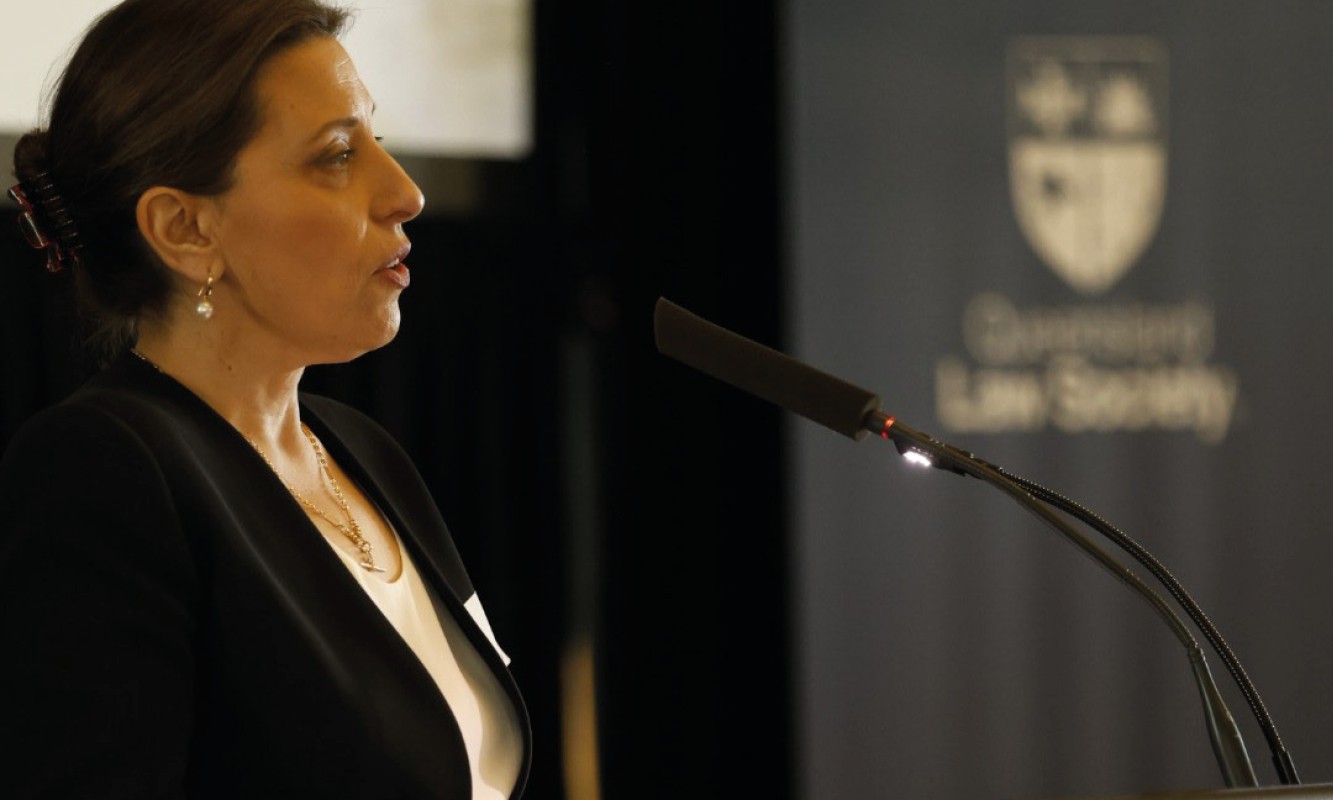Professor Nick James, Executive Dean of Bond University’s Faculty of Law, is used to receiving feedback on the current state of legal education.
And on Thursday, in his speech at the Queensland Law Society (QLS) Best Lawyers Breakfast he explained that a national conversation between law schools and key stakeholders was now under way to address changing demands and feedback on perceived gaps in the job readiness of law graduates.
In his capacity as Dean and Council of Australian Law Deans (CALD) co-chair, he hears regularly from a range of stakeholders about “how legal education needs to change”.
“And often the people that are telling us what needs to be done differently in law school are right, they’re correct,” he said. “It’s hard to argue against them.”
The challenge, he said, lay in working out how to respond to so many different calls.
He said there were requests for new areas to be included in the law curriculum which spanned a wide array of important issues such as First Nations perspectives and experiences, sustainability, international and global perspectives on law, ethical legal practice, access to justice, alternative dispute resolution as well as practitioner wellness and resilience.
And at the same time, he said other requests were for law schools “to go back to basics” and “focus upon the core areas of law” including the Priestley 11.
Still more requests called for a range of specialist areas to be included such as family law, succession law, conveyancing, competition regulation and corporate governance.
“Maritime law and whatever your particular area of law is, every law student needs to know about it.”
The solution, he said, is not an easy one.
“One solution is we just make it a 10-year degree. But that is probably not going to go down well,” he said.
“A better solution is a genuine conversation between stakeholders, at the national level, about how legal education should be structured, and what a 21st century legal professional needs to know and be able to do.”
Professor James said CALD had recently taken steps to initiate that conversation.
“The conversation has begun. CALD is engaging with the admission authorities, with the PLT providers, with the profession and with the law students,” Professor James said.
“Representatives from the peak bodies have recently come together to begin the conversation about we need to do about legal education.
“It’s going to be a long journey. There’s a lot we need to talk about, but the conversation has begun.”
Professor James said the university was proud to sponsor the QLS Best Lawyers Breakfast “because it’s just one of the many ways in which the Bond Faculty of Law and the Society actually work together and collaborate”.
“And one of the many, many ways in which all law schools of Queensland work closely with the members of the local legal profession,” he said.
“One of the other ways in which Bond’s Faculty of Law and the Queensland Law Society have been collaborating recently is in relation to the research undertaken into the profession’s perceptions of the job readiness of law graduates.
“Along with the other Deans of the law schools here in Queensland, we welcome the outcomes of the report because it, it gives us a clear delineation about the ways the legal profession sees its needs and expectations regarding law graduates as not being met, and the ways in which we as law schools can do more to prepare our students for practice.
“It points to a perceived need for, of course, better research skills, better writing skills, better communication skills, and the possible need for more experiential learning while law students are in law school in order to better prepare them for the realities of life in the profession.
“The report will no doubt make a valuable contribution to the ongoing conversation about the future of Australian legal education.”
QLS conducted a competitive tender process for the report and awarded a contract research assignment to the Bond University Centre for Professional Legal Education.
In preparing the report, Job Readiness of Graduates and Newly Admitted Solicitors, the team convened targeted focus groups, which yielded valuable information.
Their work involved evaluation of the expectations and requirements of a range of stakeholders and identifying strategies for closing the gap. The report highlights the disconnect between ‘desired skills’ and ‘actual skills’ of law graduates and newly admitted lawyers.
The project was conducted between 1 October 2020 and 1 December 2022. The survey received about 1300 responses.
More details on the QLS report will be featured on the QLS website and in Proctor next week.












Share this article